#earendil and the silmaril
Text
"our most beloved star" is such a fun way to say "that rock my relatives killed a lot of people over that's in the sky now"
#tolkien#jrr tolkien#lord of the rings#lotr#light of the silmarils#silm fandom#silmarils#the silmarillion#Silmarillion#light of Earendil#earendil#elwing#galadriel#Lothlorien#noldor#the noldor#noldorian#noldorian nonsense
831 notes
·
View notes
Text
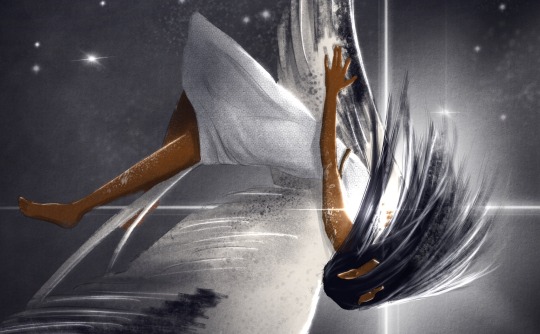

"For Ulmo bore up Elwing out of the waves, and he gave her the likeness of a great white bird, and upon her breast there shone as a star the Silmaril, as she flew over the water to seek Eärendil her beloved."
Elwing, taking the shape of a red-billed tropicbird.
I've had this image in my head for a long while, but I let it stew until I felt like I had a good enough handle on how to light it, and I'm very happy with the result.
ID in alt. Please reblog if you like it!
#elwing#silmarillion#silm#silm art#tolkien#tolkien fanart#earendil#silmaril#echo's drawings#beautiful art#echo's october 2023
432 notes
·
View notes
Text
Underrated Eldritch Peredhel: Earendil. Specifically, I love Earendil because he kind of starts out "normal," just being the child of an elf and a man. But then he marries the part-Maiarin Elwing, who's great-grandmother Melian affected her husband so much that he's described as being like a Maia lord afterwards. He steps foot on Aman, which in some of Tolkien's texts also physically changes him. He murders a giant dragon and doesn't die afterwards. He's nearly constantly exposed to the Silmaril. Like you know how Aman's light is supposed to be too much for mortals. And the SIlmarils have the remnants of Aman's light. And Earendil has mortal blood.
This is more headcanon but I also believe that no incarnate would naturally be able to do what Earendil does, sailing through the sky and void, possibly fighting the unknowable creatures in it. Varda had to give Earendil some power for him to be able to be Gil-Estel. I've also seen something about him being gifted wings but I forget where.
Just, imagine Earendil, the young sailor just setting out from Sirion, a man with elvish grace, or an elf with mannish features. And then imagine Gil-Estel, the warrior clad in dragon-scale armor, who's lived with the Silmaril for so long that the light shines from within him now. Who burns with Varda's hallowed radiance, so much that the creatures of the void can't even bear to look upon him. Who trails stardust and smiles with teeth that are just a bit too sharp. Who looks more in place aside Tilion and Arien than he does among elves or men.
I also firmly believe that Elrond was able to visit Earendil on the Vingelot– visiting a flying ship is much easier when you can turn into a bird, after all– and that the magic there also affected him, but that's a different post...
#silmarillion#earendil#elwing#eldritch peredhel#varda#gil estel#silm meta#so many thoughts about him#you've heard of Varda hallowing the Silmarils now get ready for Varda hallowing an entire half-elf#also yes he killed Ungiolant absolutely#elrond#elrond peredhel
203 notes
·
View notes
Text

Feanor in the halls
#the silm#feanor#silmarillion#maedhros#earendil#maglor#the silmarils#Feanor probably refused the call of mandos anyway
259 notes
·
View notes
Photo
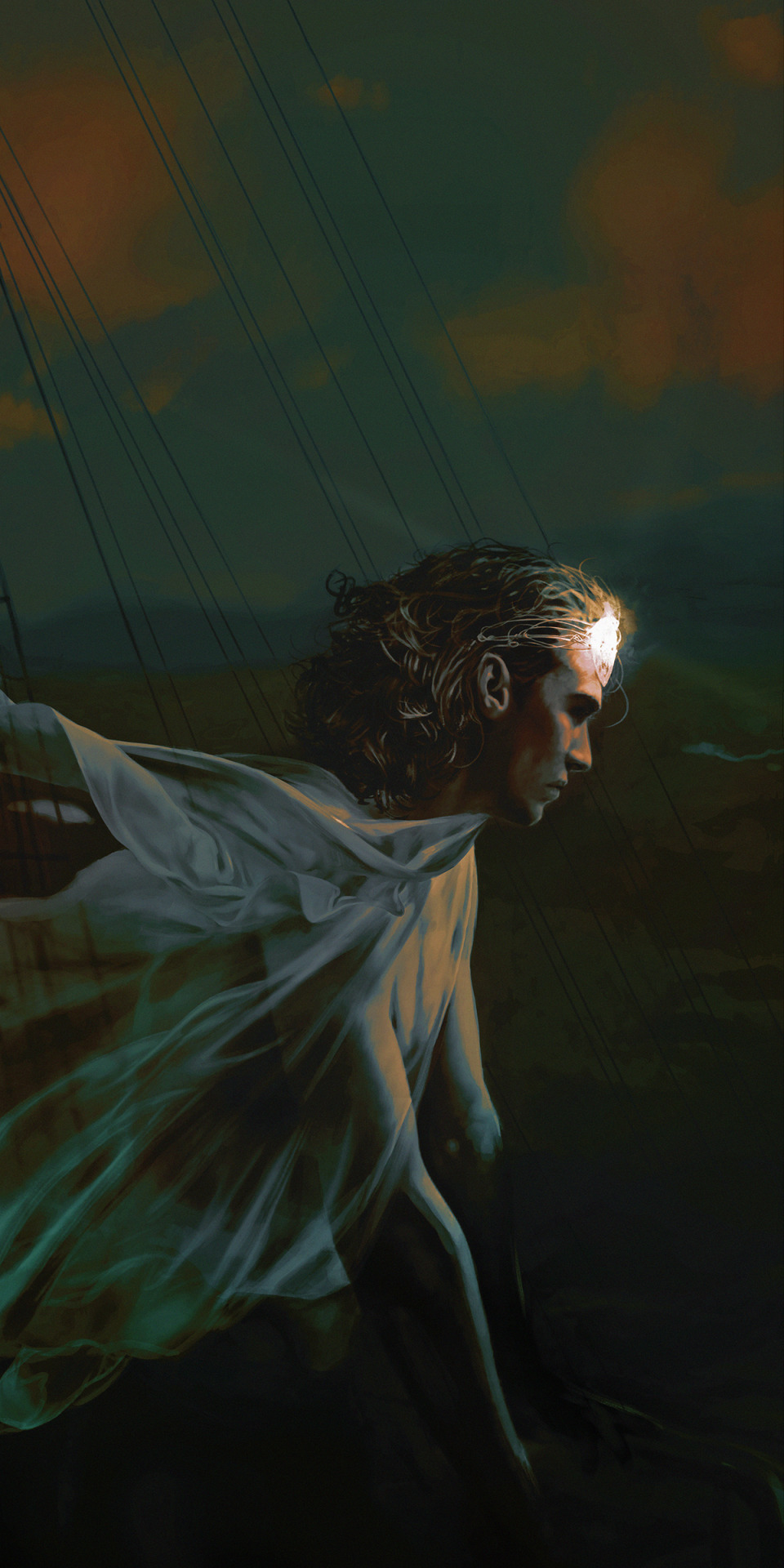
The Mariner
#earendil#eärendil#lotr#the silmarillion#tolkien art#my art#I realized I never posted this#and it's from like a year ago#was planning on making a set of three with each silmaril...
2K notes
·
View notes
Text
Returning to an old conversation about magic in LotR, something occurred to me the other day: Sting was a far more effective weapon against Shelob than Sam's sword, slicing through multiple of her webs with a single sweep and cutting into her belly without much apparent effort from Sam. The text is a bit unclear for the brief portion of the fight when Sam is using two swords, but it seems to me that the only wound Sam's own sword scores against her is against one of her eyes: "The shining sword bit upon her foot and shore away the claw. Sam sprang in, inside the arches of her legs, and with a quick upthrust of his other hand stabbed at the clustered eyes upon her lowered head." While both swords could potentially be shining, Sting is established to be glowing at this point due to the proximity of the orcs in the tower, so I'm inclined to believe that the shining sword here is Sting, the one that chops off the end of one of her legs no problem, while the other one strikes against her eye, established two paragraphs later to be her softest spot.
Now Frodo attributes this potency against Shelob to the sword's origins. "There were webs of horror in the dark ravines of Beleriand where it was forged." And basically this pans out, Gondolin, where Sting was made, was not too far from Ered Gorgoroth, where Ungoliant and her spawn (including, most likely, Shelob herself) lived until Beleriand fell. The logic here, is, perhaps, similar to the reasoning for why Frodo and Merry's barrow-blades were so potent against the Witch-king, having adopted a portion of their makers' loathing for a particular enemy. And there is indeed evidence enough for this: the first spider Bilbo encounters in Mirkwood "evidently was not used to things that carried such stings at their sides, or it would have hurried away quicker." This spider lived not too far from the Elvenking's halls, surely it had been attacked with weapons before, which does call up an idea of there being something especially terrible to it about this particular sword. (Though this spider is also inarguably quite inept and possibly stupid; no shade to Bilbo but losing a fight to a mostly-tied-up enemy that can't see in the dark and has never before fought anything more dangerous than a particularly stubborn door-to-door salesman doesn't exactly reflect well on its capabilities.)
But I think Sting had another enchantment on it, and one a great deal more recent, and possibly even more direct: the enchantment of its name.
Bilbo takes a sword from a troll-hoard, puts it on his belt and under his jacket, and then proceeds to carry it around for months without thinking about it at all -- until, that is, he finds himself face to face with a giant spider, a giant spider who, as is made clear in the text, was one of Shelob's own descendants: "Far and wide her lesser broods, bastards of the miserable mates, her own offspring, that she slew, spread from glen to glen, from the Ephel Duath to the eastern hills, to Dol Guldur and the fastnesses of Mirkwood (emphasis mine)."
So Bilbo takes his sword and makes his first kill, and what we witness next is a Moment by any definition: "Somehow the killing of the giant spider, all alone by himself in the dark without the help of the wizard or the dwarves of of anyone else, made a great difference to Mr Baggins. He felt a different person, and much fiercer and bolder in spite of an empty stomach, as he wiped his sword on the grass and put it back into its sheath."
Then Bilbo names the sword, and he names it Sting, calling to mind the thought of a fly that can fight off a spider, a tiny creature coming out on top in a fight with a fierce predator. And then he sets off and uses his newly minted sword to rescue his friends from giant spiders. And though he uses the sword again in his adventure, it is never such a great moment, and indeed he ends up missing a great deal of the battle where it would have been most useful, leaving this incident with the spiders as not only his first use of the weapon, but his most significant -- as The Hobbit is meant to be adapted from his memoirs, certainly the only one he felt important enough to write about.
And for sixty years Sting laid quiet in the Shire, hanging over Bilbo's mantle, where he told stories about it to his nieces and nephews and cousins and anyone else who would listen, and doubtless the story he kept circling back to was the one about the great spiders and the christening of his sword, and even if nobody believed it, a bit of a legend grew about it, and whatever deeds, if any, it was involved in before it found its way to the troll's hoard were forgotten, and it became the Sting, the sword that was used to defend friends from Shelob's brood.
I hardly need to point out the power inherent in names and the naming of things and people in Tolkien's work.
And then, seventy-eight years after its christening, Sting finds itself in another spider's lair, the grandmother or great-grandmother of that first spider that earned it its name -- and this is what it is, now. This is its entire identity, insomuch as a sword can have one of those. I think that over seventy-eight years Bilbo quite inadvertently but also quite effectively wove an enchantment against Shelob and her ilk on that sword, never knowing how much it would matter in the end. Indeed, I would put forth that there was no other weapon in contemporary Middle-earth that would have been such a bitter sting to Shelob; similar enchantments, perhaps, could be found in Thranduil's halls from his people's long struggle against the spiders there, but on a blade from Gondolin, which shared a mountain range with the land where Ungoliant herself lived for a time? And Glamdring and Orcrist would have inherited those properties alongside Sting, but they had a legacy of goblin slaying, not spider slaying.
So, quite by accident, Frodo and Sam walked into Shelob's lair with the best possible chance of escaping her.
#lotr#also combined with the light of earendil of course#because blah blah blah earlier version of the histories where earendil killed ungoliant#but even more so something something light of the silmarils being the one thing ungoliant wasnt able to devour#greed hates what it cannot have or something idk#also i realize some people disagree with this but i think the text clearly states that shelob is the direct child of ungoliant#because in the same paragraph where shes described as 'the last child of ungoliant' its established that she has broods of her own#and also that these broods are uhhhhh#pure#if you get what i mean#the bloodline is unbroken#if you follow#but SHES the last. her children dont count as children of ungoliant#because theyre children of shelob theres a degree of separation
674 notes
·
View notes
Text

#silmarils#silmamemes#earendil#elwing#vingilot#the silmarillion#silmarillion#silmarillion incorrect quotes#tolkien#jrr tolkien#lord of the rings#lotr#lotr rop#lotr trop#fantasy#the hobbit#lotr memes#tolkien memes#tolkien tumblr#silmarillion memes
136 notes
·
View notes
Text
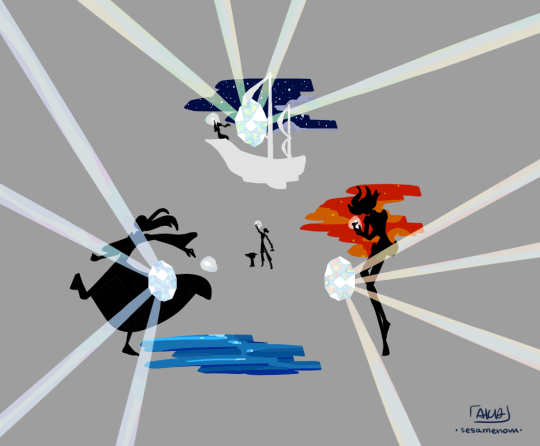
Day 6 Objects & Symbols for @tolkiengenweek: Silmarils.
#silm#silmarillion#silmarils#earendil#maedhros#maglor#feanor#(he's the little one in the middle)#drawing these silhouettes made me think about how silm fans basically identify characters by symbology/surrounding context#tolkiengenweek#like a vague stick figure of a random star wars human character with no like. lightsaber or anything. is kind of hard to differentiate#and its mostly the same for elves#but we're used to 90+% of elves being only vaguely described in the text as some combination of dark/gold/red/silver hair; tall; pretty#meaning we have to rely more on iconography? is that the right word for it#gold braid? fingon#feanorian stars? one of the feanorions probably#bow in the forest is probably celegorm#if its sindarin bow in the forest then its beleg#female bow in the forest is aredhel#sadness harp and water is maglor#fire doom lava is maedhros#anyways making recognizable silhouettes for maglor maedhros and earendil was surprisingly easy
286 notes
·
View notes
Text

Eärendil's Light
" But on him mighty doom was laid, till Moon should fade, an orbéd star to pass, and tarry never more on Hither Shores where Mortals are; for ever still a herald on an errand that should never rest to bear his shining lamp afar, the Flammifer of Westernesse.
The Song of Eërendil, Lord of the Rings : the Fellowship of the Ring, “Many Meetings“
______________________________________________________________
Artwork made by @lucyfloyenworkshop
. Please don’t use/repost/trace my artworks without my permission
. Reblog (with my copyright) and likes are welcomed :-)
151 notes
·
View notes
Text
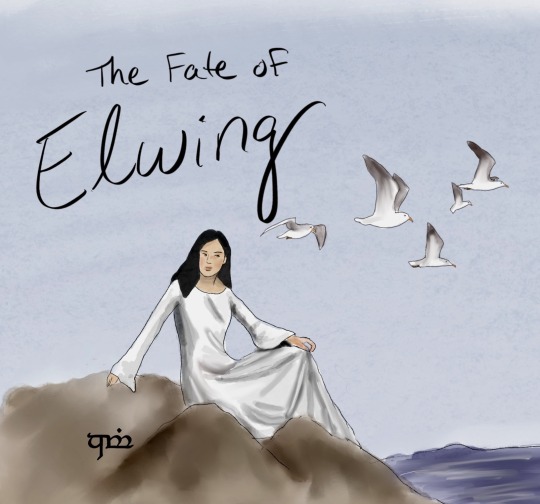

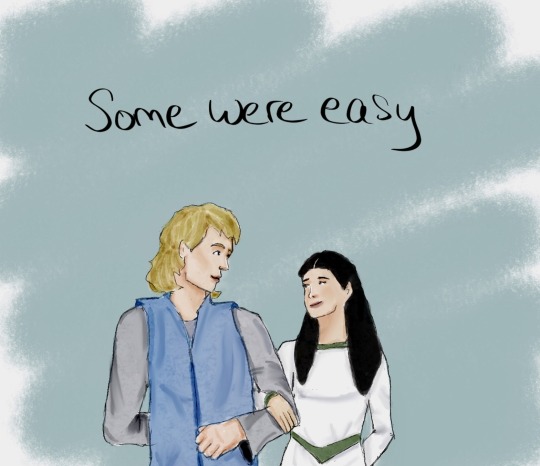


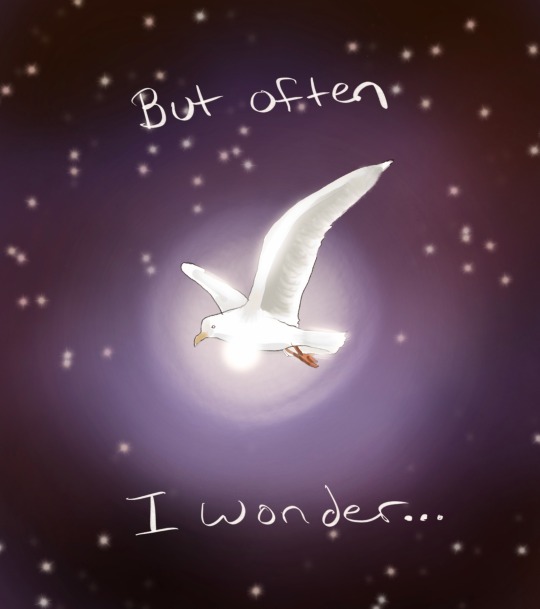
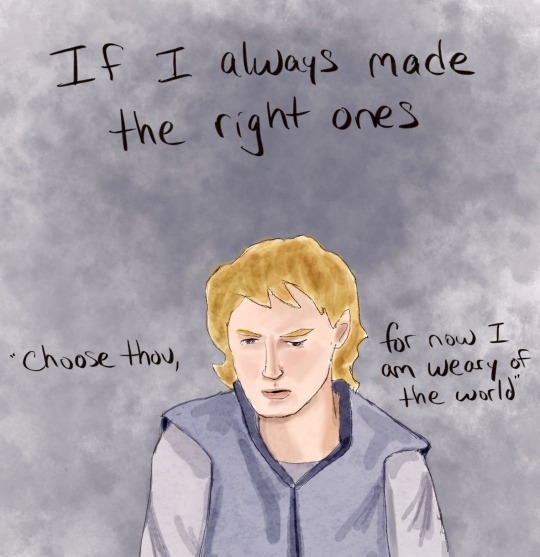
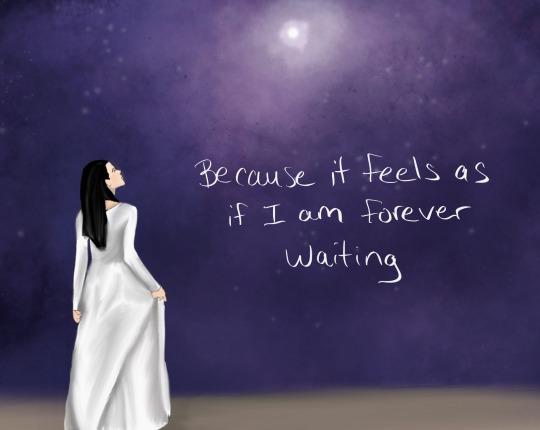
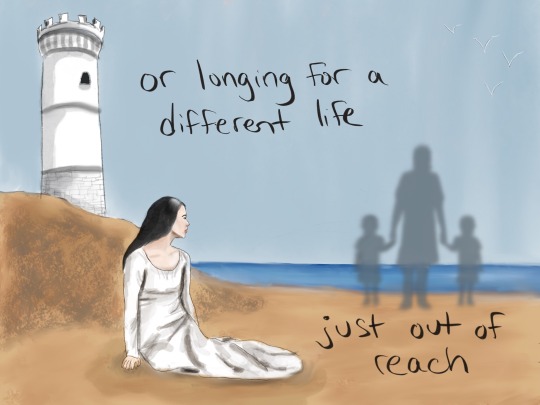
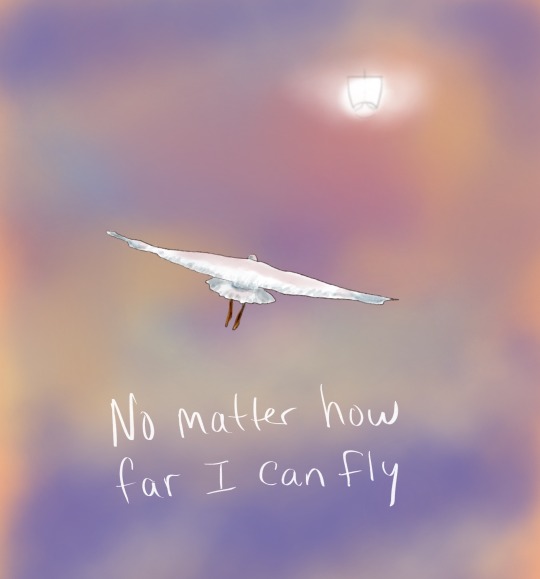
#elwing#the silmarillion#earendil#Elrond#elros#tolkien#tolkien fanart#silmarils#silmarillion fanart#tolkien legendarium
208 notes
·
View notes
Text
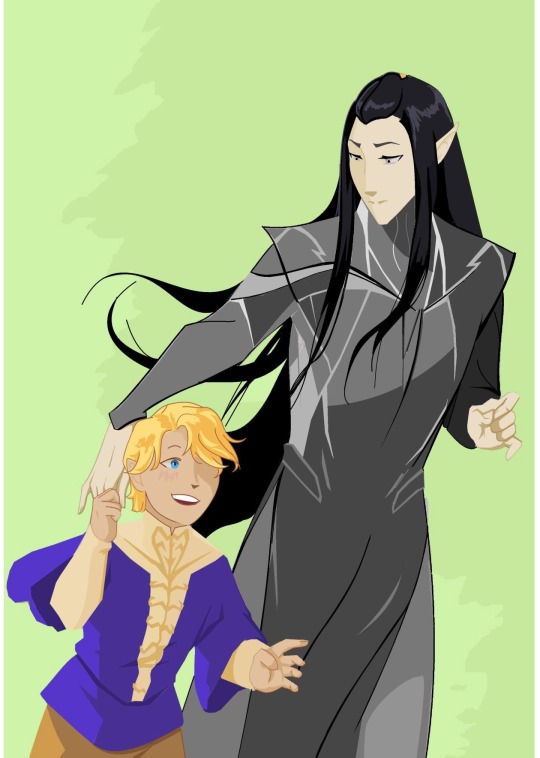
You promised—
He always liked to think that Earendil hated him. It made it easier, somehow. To push back the grief and the guilt and the filthiness that clung to his bones.
But his nephew was constantly in his presence, laughing and chattering like a little bird.
And Maeglin hated himself all the more for what he had done.
Day 4: Earendil & Maeglin for @nolofinweanweek
#nolofinweanweek#nolofinweanweek2023#the silmarillion#maeglin#earendil#gondolin#my art#tolkien art#decided to use my origin design for maeglin this time#a happier moment before shit went down#i love the idea of earendil calling him uncle and dragging maeglin away from his forges and mines to explore the markets#…#damn it#theres another au rattling around#maeglin escapes angband with a silmaril and returns to gondolin#morgoth sends out his army earlier than expected and gondolin falls without maeglin’s betrayal#he flees the city with the orphaned earendil and the silmaril and they seek asylum with the feanorians/the feanorians hunt them down#maeglin makes himself indispensable with his knowledge of galvorn and becomes their weapons master while raising earendil#single dad maeglin teaching earendil how to forge weapons and to fight#the feanorians sneaking in to throw out advice#knowing me it’d probably end up including maemae lmao#bc maedhros finds competence sexy 😏
128 notes
·
View notes
Text
Tada!!! This commission was for the amazing @cuarthol / @nothinghereisworking !! Thank you again for inspiring me and I'm so glad to get to share this comic!
The tale of Elwing, her family and the Silmaril, as retold with the beautiful song, "Look for the Light"
(Yes from Only Murders in the Building but darn it its a beautiful song and it works so well for Elwing)

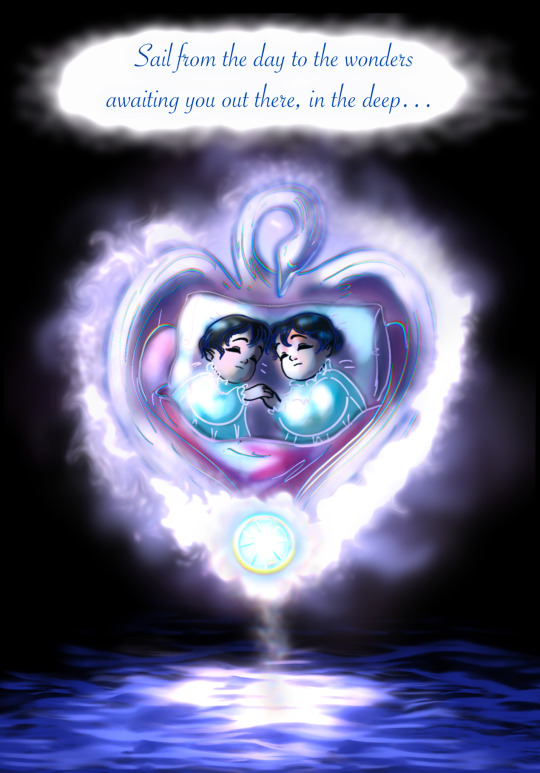

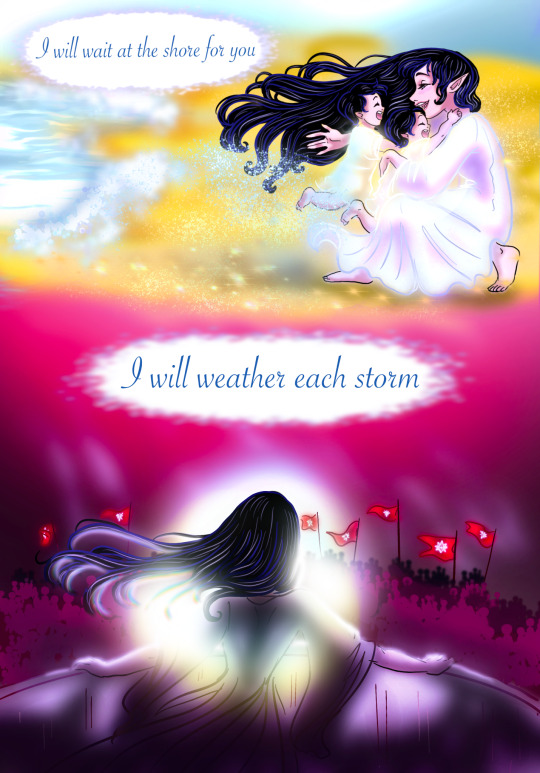
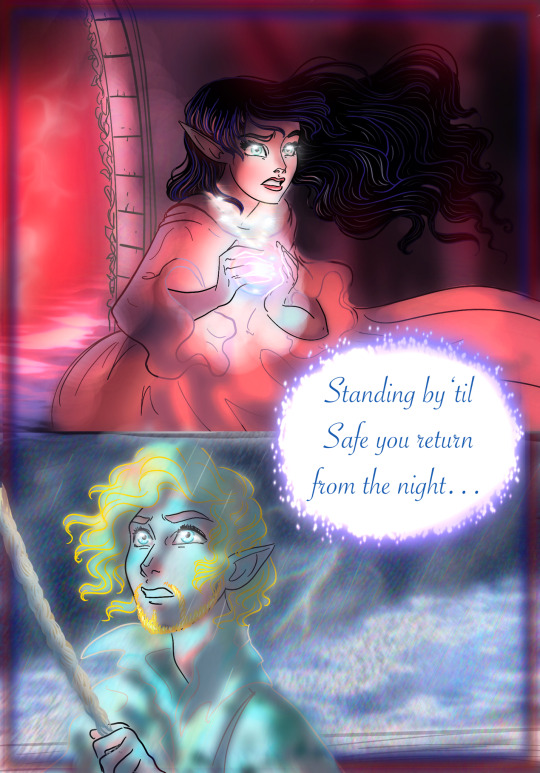
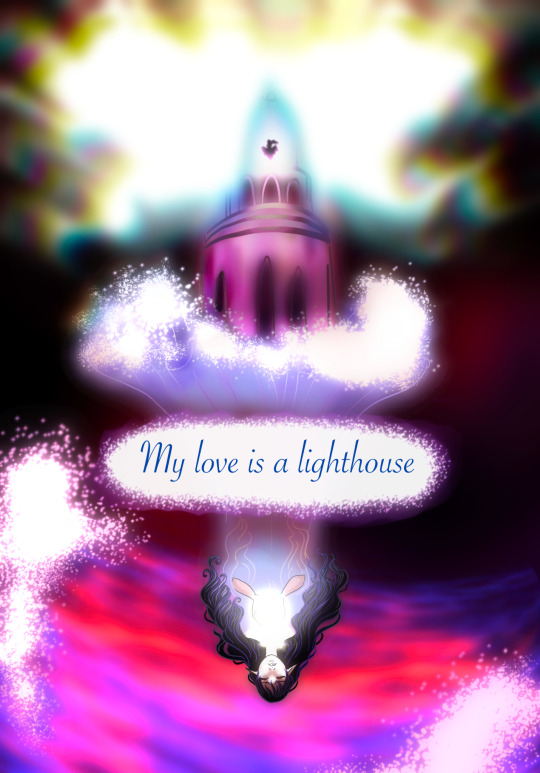
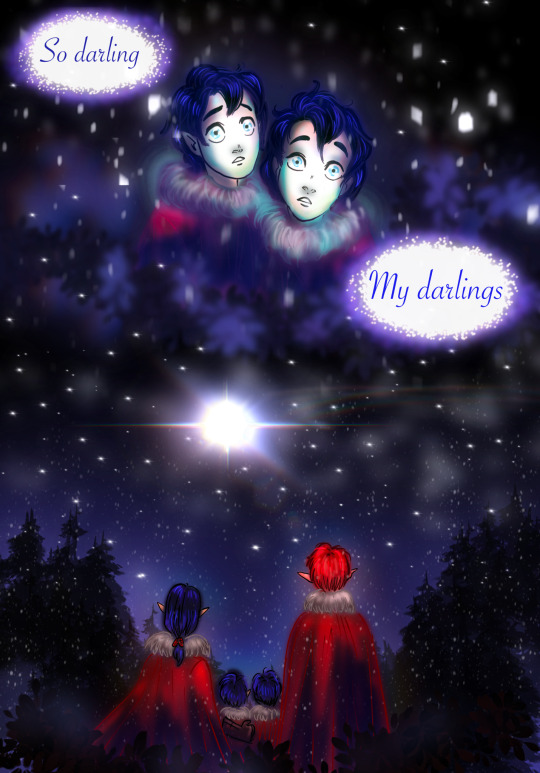

As always click for better quality
And here's the song
youtube
#my art#commission#silmarillion#tolkien#Elwing#earendil#elrond#elros#Maglor#maedhros#the silmarils#the silmarillion#silm art#silm comic#comic art#tolkien comic#art comissions#look for the light#omitb#only murders in the building#ain’t that a heck of a crossover xD#Youtube
65 notes
·
View notes
Text

Eärendil WIP
#earendil#lotr#silmarillion#silm#the lord of the rings#the silmarillion#tolkien#silm art#lotr fanart#echo's drawings#idk if i'll add the silmaril in his hand or on his brow#in my mind it's on the prow of the ship#but it might make him more recognizable#also i waver between shoulder-length hair and locs for him#my earendil is blind so i might add some kind of cane too
101 notes
·
View notes
Text
Silm AU Concept that Won't Leave me Alone:
Earendil falls ill, not long after his marriage. None of the healers in Sirion– human or elven– can explain why. Maybe it's because Idril and Tuor left for Valinor recently, and no one really thinks they'll make it there alive. Maybe it's the plague that's been sweeping through war-torn Beleriand. Maybe his body is just giving up on him– it's not unheard of for half-elves to die that way.
And it's becoming clear that Earendil is dying. Nothing they do helps. Some of Elwing's advisors try to keep her away from his bedside– half out of fear his illness is contagious and half because she spends all her time there, refusing to eat or rest. They're trying to protect her from the horrible truth. It isn't working.
Elwing knows of two great sources of magic. One is her own– inherited from Melian, running far stronger in her blood than any had expected, far stronger than it had in her father. Strong enough that she's spent most of her life learning to hide it. Flowers bloom under her feet, birds flock to her side. Elwing is powerful, but she's young; untrained. She tries to help Earendil. She fails.
And then there is the Silmaril. The Silmaril's power is not like hers. It does not make things grow, or bring the birds and gentle beasts of the world to their doorstep. But it drives away the orcs, keeps the wolves at bay, cuts through the darkness, burns away evil. It is a much more violent kind of purification.
And Elwing thinks, is it not evil coursing through my husband's veins, choking his lungs, threatening to tear him away from me?
She takes the Silmaril and pries it open with a dagger, pouring it's divine light into the abalone-shell cup that Idril had given her before she sailed away. She gives it to Earendil, comforts him, climbs into bed beside him. They hold each other, whisper their marriage vows again in the darkness. When Elwing drifts into sleep, she doesn't know if he'll still be there when she wakes up.
And then Earendil wakes up with clear, bright eyes. It works. It works very well. It works so well that Elwing has to teach Earendil how to hide the new light in his eyes and the shimmer under his skin.
Elwing keeps the Silmaril hidden away after that. Some whisper that she's become obsessed with it, just as her father had. In truth, she's just trying to hide the fact that the gem has no light left. Somehow, she doubts her advisors would approve of her decision.
But she doesn't care, and neither does Earendil. They are happy, and in love. Not long after Earendil's recovery– a recovery most think was a miracle sent by the Valar– they have children. Two very strange children with sharp teeth and bright eyes who they love very much.
It looks like everything will work out for Elwing's little family, right until the day the first letter from Maedhros Feanorian arrives.
#silmarillion#silm au#silm headcanons#elwing#earendil#elrond#elrond peredhel#elros#maedhros#eldritch peredhel#sirion#crack treated seriously#what if someone drank a Silmaril?#I kind of want to write more of this is has *implications*#let the Peredhel fam be weird together!!#Elwing and Earendil are the couple of all time
113 notes
·
View notes
Text
The Way I Fly to You
Arm over arm. Hook the elbow. Lift. Grab the next rung. Lift. Step by step. Two rungs with each left. Lift. One with each right. Lift. Do not look down. The Light is above. It calls. It is worth it. It must be. Lift.
Almost there. Alm— oh.
“Hullo, kinsman! Before you think of climbing the rest of the ladder, I’d like to point out that it’s easily detachable from the deck, and the ground is a considerable way down. Now, I do believe you owe my wife and me several apologies?”
“Honk!”
Maedhros really should have thought this through.
#silmarillion#the silmarillion#tolkien#silm fic#maedhros#earendil#elwing#drabble#stormwritten#in which Maedhros tries to go for a different Silmaril at the end of the War#why yes that title is a Snake Eater reference#Elwing is currently a goose and about to make it a kinslayer's problem#Earendil and Elwing: obeying the letter of the Doom but not the spirit since F.A. 542
33 notes
·
View notes
Note
As somebody who has pored over your past stories, I cannot help but find the hunt for the pieces of eden to be akin to the events of the wars of the jewels as mentioned in the silmarillion. In your view, how would you think a post-death Desmond (who winds up possessing some magic Isu powers) in beleriand getting involved with either the quest of the silmaril or the fostering of elrond and elros (referred to as the kidnap fam by sectors of silm fandom) by the last sons of feanor would go down?
It would be fun if Desmond doesn’t know about the plot of Silmarillion. He only watched the Lord of the Rings trilogy but he never read any of the books. Didn’t even get to watch the first The Hobbit movie because he was busy trying to save the world.
Shaun did go on a tirade about how it was possible that JRR Tolkien had some knowledge about the precursors and used that as the basis of the books. (Years later after Desmond’s death, Shaun would wonder if it was possible that JRR Tolkien was a Sage) but Desmond had been to busy trying to remember how his body worked to pay him much attention.
So, when Desmond gets transported in the middle of the Quest of the Silmaril, he knows he’s in a different world but he didn’t know he was in the same world as the movies he watched before.
It’s only when he meets Galadriel by chance that he realized where he was and even that information is useless considering he’d been pushed into the distant past.
For this one, we can go two different routes:
(1) Desmond gets in the thick of the entire thing because he saw the death and misery brought upon the land by the greed and desire to possess these ‘stones’.
(2) Desmond gets roped into it against his will because Morgoth lose another Silmaril and no one knows how that happened. All they know is that the ‘distinct feeling’ of the Silmaril is encasing Desmond. Desmond swears he doesn’t have any stone or jewel or whatever but no one believes him.
Both routes would have Desmond take in a rogue third party of some sort role. Would he create his own Brotherhood? Not in the beginning but after more and more people follow him, he’s forced to acknowledge that, yeah, he’s definitely the mentor now.
And his targets are those who would stop at nothing to get those damn stones.
And yes, that includes the Sons of Fëanor.
It is during his pursuit after them that he finds Elrond and Elros, effectively stopping Maglor from ‘adopting’ them. Desmond tries to help Elrond and Elros in finding their father because, as far as they know, their mother is already dead.
Desmond definitely assumed their father is an asshole for not even looking for them after what has happened and sorta-kinda adopted the two.
Desmond has a problem of his own though.
He noticed that he wasn’t aging at all.
No matter how many years have passed…
(If Desmond is the silmaril given ‘human’ form, he would be the silmaril of the earth, ‘cursed’ to walk Middle-Earth until Dagor Dagorath)
#aka he’s the earth version of earendil#if he is the silmaril#if not#he’s just a normal dude who suddenly doesn’t age#it’s because he’s not of this world#so time has stopped in his case#assassin's creed#desmond miles#ask and answer#teecup writes/has a plot#fic idea: assassin's creed#fic idea: silmarillion#fic idea: crossover
22 notes
·
View notes